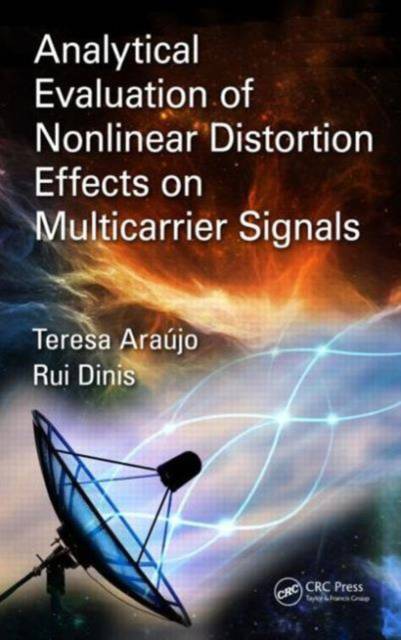
- Retrait gratuit dans votre magasin Club
- 7.000.000 titres dans notre catalogue
- Payer en toute sécurité
- Toujours un magasin près de chez vous
- Retrait gratuit dans votre magasin Club
- 7.000.000 titres dans notre catalogue
- Payer en toute sécurité
- Toujours un magasin près de chez vous
Analytical Evaluation of Nonlinear Distortion Effects on Multicarrier Signals
Theresa Araújo, Rui DinisDescription
Due to their ability to support reliable high quality of service as well as spectral and power efficiency, multicarrier modulation systems have found increasing use in modern communications services. However, one of the main drawbacks of these systems is their vulnerability to nonlinear distortion effects. Analytical Evaluation of Nonlinear Distortion Effects on Multicarrier Signals details a unified approach to well-known analytical results on memoryless nonlinearities that takes advantage of the Gaussian behavior of multicarrier signals.
Sharing new insights into the behavior of nonlinearly distorted multicarrier signals, the book begins with a review of the fundamental principles of multicarrier transmission and multicarrier-based systems. Next, it covers well-known results on nonlinear distortion of Gaussian signals and examines the accuracy of the use of Gaussian approximation for evaluating nonlinear effects. It also considers the performance of various multicarrier-based systems in the presence of different types of nonlinear devices.- Describes general clipping and filtering techniques to reduce the envelope fluctuations of multicarrier signals
- Analyzes quantization effects caused by the numerical accuracy required in the DFT computations
- Discusses quantization requirements of analog-to-digital converters
- Redefines loading techniques to take into account nonlinear distortion issues on adaptive multicarrier systems
- Examines the impact of nonlinear signal processing techniques for reducing the envelope fluctuations of OFDMA signals
- Presents performance results for all the discussed applications
The book covers the essential principles of multicarrier modulations, including OFDM modulations and other multicarrier schemes. It describes multicarrier modulation systems that will be used in next-generation communications systems and also provides new insight into the behavior of nonlinearly distorted multicarrier signals.
Illustrating the application of the nonlinear distortion analysis techniques presented, the book provides you with a wide range of analytical tools to assess the effects of nonlinearities on the performance of multicarrier-based schemes.Spécifications
Parties prenantes
- Auteur(s) :
- Editeur:
Contenu
- Nombre de pages :
- 220
- Langue:
- Anglais
Caractéristiques
- EAN:
- 9781482215946
- Date de parution :
- 22-04-15
- Format:
- Livre relié
- Format numérique:
- Genaaid
- Dimensions :
- 157 mm x 229 mm
- Poids :
- 476 g







